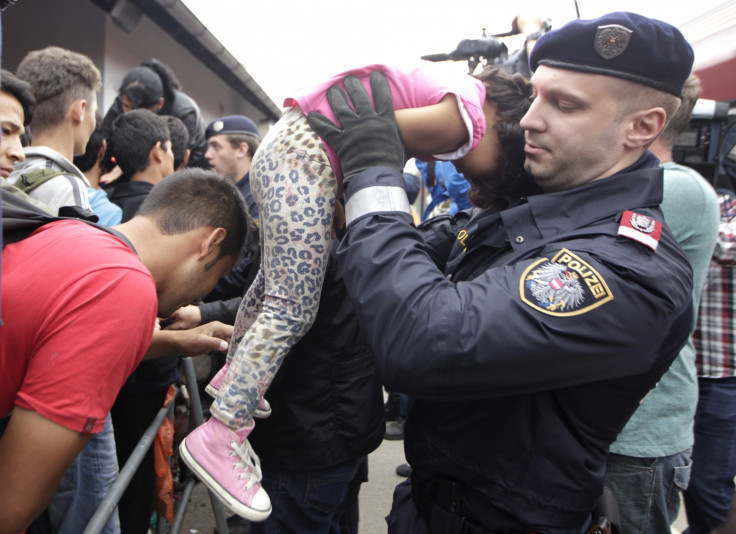Migrant numbers expected to top 10,000 entering Austria due to 'current emergency'

The number of migrants crossing the border between Hungary and Austria is expected to increase by thousands each hour with up to 10,000 refugees flocking into the country by sundown, increasing pressure on already stretched resources. Despite the Hungarian government's insistence that last night's transfer of those seeking asylum on buses was a "one off" Austria is still expecting the many thousands who chose to approach the country's borders on foot.
More than 4,000 migrants, from war-torn countries including Syria and Iraq, have already been greeted at Red Cross stations set up at the Austrian border. Many are expected to make their way onwards to Germany, where the country's chancellor Angela Merkel has made a pledge that they will be welcomed with open arms. The Austrian government has already agreed with the German authorities that certain immigration rules will be waived to allow faster processing of those wishing to cross the border.
Werner Faymann, the Austrian Chancellor, said that both Austria and Germany had agreed to receive the migrants. The decision, he said, had been taken in consultation with Merkel as well as the Hungarian government and was motivated by "the current emergency".
Germany: No limits to refugees
The chancellor has said that Germany would be setting no limit to the number of people applying for asylum in her country. The German government has already revised its estimate of the number of migrants set to enter Germany from 300,000 this year to 800,000.
In the midst of the greatest mass migration of refugees since the Second World War, Hungary has been struggling to keep up with the amount of migrants entering the country across its borders. Thousands of refugees are still stranded in the Hungarian train station Keleti in the country's capital Budapest. Hungary had previously agreed to process some of the migrants crossing its borders and to take them to processing camps as part of an international agreement to process migrants in the first country they can be registered.
According to the International Organisation for Migration, 249,650 refugees and migrants entered the EU via Mediterranean countries between January and end of July this year, and a further 2,349 died, many drowning during the treacherous sea route across the Mediterranean to Greece and Italy. Of those, 2,800 are now in Calais.
The pressure on governments across the European continent and in the UK to accept more refugees has reached boiling point with many migrants refusing to adhere to European border protocol walking thousands of miles and breaking through border fences to make their way to their destinations.
© Copyright IBTimes 2024. All rights reserved.







